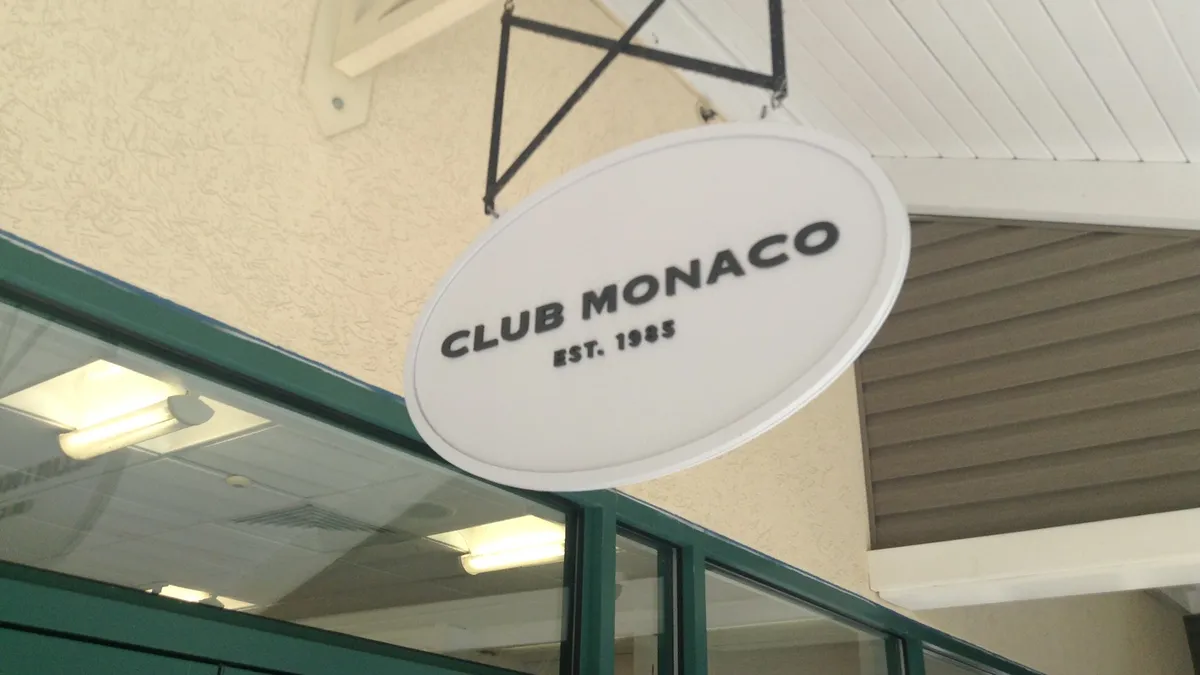Dive Brief:
-
Ralph Lauren on Thursday announced the sale of its Club Monaco brand to private equity firm Regent for an undisclosed amount, a deal expected to close by the end of June.
-
The apparel company acquired the upscale apparel brand in 1999 in a cash transaction with an equity value of about $52 million; Polo Ralph Lauren also paid in full some $35 million in Club Monaco Inc. debt, according to a filing with the Securities and Exchange Commission.
-
As part of its turnaround strategy meant to sharpen its focus, Ralph Lauren has been weighing its options for Club Monaco. The sale to Regent, (along with last year's decision to turn its lower-priced Chaps brand into a licensed business) "concludes this portfolio evaluation," the company said.
Dive Insight:
There are two plot points in the hit movie "The Devil Wears Prada" that arguably haven't aged well: One is main character Andy's controlling boyfriend and the other is the snide comment by her friend that she misses the girl who thinks "Club Monaco is couture."
Not that Club Monaco is couture, exactly, but the brand has a lot of well-dressed fans. Twenty-two years ago, when Ralph Lauren snapped it up, the company was in an expansion mode that it is now dismantling to a great extent. That may have a lot to do with consumers' embrace of casual clothing for just about every occasion — something that has also hit Banana Republic hard and has only been exacerbated by the pandemic. Analysts including Credit Suisse's Michael Binetti anticipated the move, with Credit Suisse in late April noting that a Club Monaco sale would boost earnings in the near term.
It also represents Ralph Lauren's recent effort to concentrate on its own strengths, according to BMO Capital Markets Managing Director Simeon Siegel, who also said the sale comes as no surprise.
"The question of acquisition versus organic growth versus focusing on core strength is a question that's in constant flux, and I think all companies go through varying versions of it," Siegel said by phone. "There are certain companies that aim to be a portfolio of brands and there are certain companies that aim to do one or two brands really well. It's always an evolution."
The disruption to retail caused by the pandemic has presented companies with an opportunity to reset, he also said. "Like others, Ralph Lauren has appreciated the ability to use this time to recalibrate their business model," Siegel said. "I think that they're focusing on just their core healthy businesses, and on growing their core healthy businesses."















